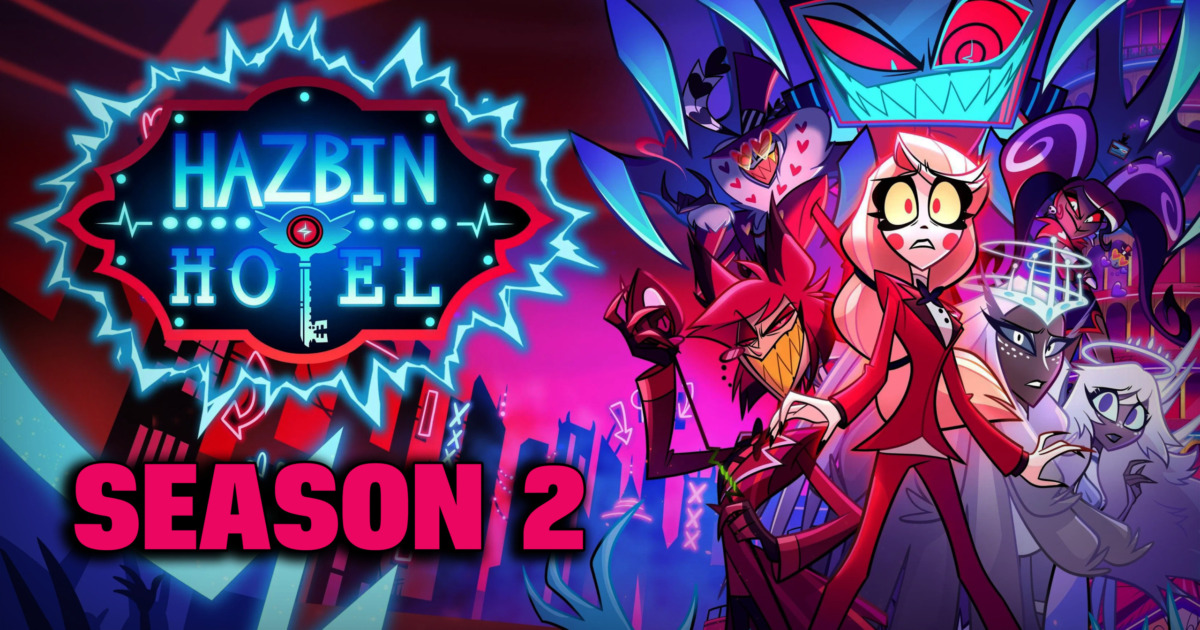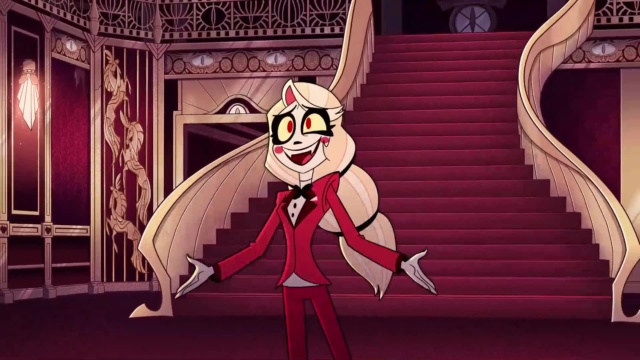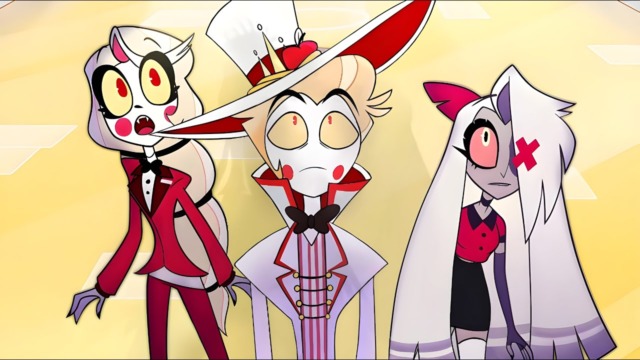‘Hazbin Hotel’ Season 2: Much More than A Musical about Heaven and Hell

Hazbin Hotel season 2 is one of those shows that we needed to see this year. Compared to the previous season, we needed to see higher stakes in the war between heaven and hell, we needed more world-building, to be introduced to new characters, and a more concentrated narrative. We don’t have to see again whether Charlie’s (Erika Henningsen) dream of redemption can survive when both heaven and hell are against her, because the finale of season 1 already proved everything is possible. Instead, season 2 focuses entirely on developing this world and learning more about the characters in it.
[Warning: you might find mild spoilers from the series below!]
The story for Hazbin Hotel season 2 is an improvement on the first
Hazbin Hotel season 1 was that kind of project that you either bought instantly or you decided to pass on it. Even though the entire season 1 had some small, minimal problems, it was very enjoyable. While season 1 felt like a pilot series that needed time to find its rhythm, season 2 proves the creators completely knew what they wanted. The main plot of the story this season is no longer “Let’s rehabilitate sinners so they can go to heaven.” Instead, the hotel itself becomes a center of “political” war between heaven and hell.
Because the show decided to tighten its narrative a little and change the focus to more important aspects of the show, season 2’s story has plenty of payoffs. The nature of Charlie’s optimism, the hotel’s legal, political, and social importance for people in Heaven & Hell, or the reveal of the true ambitions of the so-called “Overlords” are some of the most important parts of this season’s story.
Where season 1 sometimes sacrificed payoff for dwelling on personal problems or funny moments, this season feels much more balanced. The jokes and musical sketches are still there, but they serve as an important part of the narrative and not just as a spectacle.
The biggest emotional payoffs this season are subtle most of the time. This season builds itself on a series of small redemptive moments. That works really well this season because all those accumulated moments are filled with redemption, admission of guilt, and moments where the cost of hope becomes so high that the decision to be redeemed will be final.

Evolution of the characters in this adult animated series
The real victories in season 2 are the evolution of the characters from the first season. Charlie became less of an optimist this time around. All because she’s been forced into decisions that make her compassion be lost behind a great personal cost, and sometimes it’s being shown as naive.
From the first episode, we watch Charlie struggle to admit that the brutal logic of people being trapped in Hell makes sense. On the other hand, we have Vaggie (Stephanie Beatriz), who still struggles with the reveal of her past as an angel. Angel Dust (Blake Roman), who previously often functioned as comic relief, has a much more serious and emotional moment that shows how parts of the past, full of pain and decisions made purely on emotion, can hurt.
The Overlords and other creatures are more sinister this season, but their further development is treated with care to not use every plot twist or reveal at once. They stop being just villainous caricatures, and they start to be depicted more as beings with complicated pasts, histories, dreams, and ideas. That makes the dialogues feel less like cartoonish and humorous and more thought-out, smart, ethical, and political. There are no obvious “good and evil” characters, and that’s what helps to make Hazbin Hotel season 2 better than the first one.
With so many decisions to add more development to certain characters, some arcs were shortened or, at least I hope, left to be used in future seasons. There are moments where visual jokes and major events in certain episodes make sense, but sometimes they feel way too heavy and overused. It definitely is a chaotic season, but it works much better because we know that it leads somewhere and that there are plans to further develop both the characters and the world.

Season 2 explores themes about hope and accountability
In many personal moments this season has, it asks the viewers and the characters whether hope alone is enough to survive through the darkest moments of our lives. The show refuses to avoid moral dilemmas. It tries to prove that redemption is not something you can achieve in 5 minutes. It all depends on whether you’re ready to try and forgive not only other people, but yourself.
Within this season’s lore, characters in the show must face not only their own demons but also the fact that the proven idea of redemption rewards those who want to escape Hell and be better. When they do that, they will be redeemed. That’s an important shift in the narrative, because it changes Charlie’s project from an act of personal kindness to prove to everyone that you can go to heaven into a political experiment that ends up being messy, compromised, and heartbreaking.
The truth coming from this season about admitting that sometimes the people who want to change still hurt others, or that sometimes the “good” people make choices that look selfish, is difficult to admit.
Hazbin Hotel seasons 1 & 2 are now streaming on Prime
Season 2 of Hazbin Hotel is still set to be a daring light and dark comedy with the addition of songs that serve as a more profound description of the situation and characterization of our heroes and villains. But this season shows it’s a series that understands stakes and consequences. It feels like a fully developed project that now has a plan for where to go and how to finish the story in a few seasons.
This Prime animated series proves it is much more than just a musical cartoon about Heaven and Hell. The new season’s real strength is showing the viewers a moral conflict that even the most evil/duplicitous characters can experience. By turning the Hazbin Hotel into a place of political and social conflict between Heaven and Hell, the show tries to get deeper into the exploration of hope, trauma, accountability, and the need for redemption in the face of the unknown. It doesn’t hand out answers on a silver plate, but it humanizes the characters and shows their willingness to finally face the consequences of their choices. Even if it’s after an inner fight not to do so.
Also check out Hazbin Hotel Brings Heaven, Hell, Hilarity, and Heart to Prime Video


